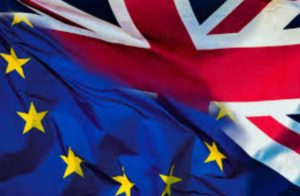Brexit – where are things at?
 Brexit negotiations have increased apace ahead of the UK’s planned departure from the European Union next March.
Brexit negotiations have increased apace ahead of the UK’s planned departure from the European Union next March.
But with British Prime Minister Theresa May yet to secure a deal, facing splits within her party and the tough task of securing parliamentary approval for the final agreement, what the ultimate outcome is is far from clear.
Talks have become stuck on fundamental issues including what happens at the Irish border after the UK leaves the EU’s single market, and on the future of trade between the two.
EU negotiator Michel Barnier and his British counterpart Dominic Raab admitted recently that key differences remained and they had “intensified” the program of negotiations.
Prime Minister May wants to maintain a close relationship with the EU in certain areas, including what she terms “common rule book” for goods and traded within what she has called a new “UK-EU free trade area”.
She has said she wants to ensure trade remains as “frictionless” as possible while avoiding the return of a hard border between Northern Ireland and the Republic.
She also wants to allow skilled migrants access to jobs in the UK.
But, the EU could reject this proposal.
Leaving without a deal could hamper exports to the EU, Britain’s largest market, as it would end tariff-free trade.
It would see the UK forced to trade with the EU under World Trade Organisation (WTO) rules, meaning there would be customs checks and tariffs placed on each other’s goods.
There are also fears this could also cause disruption at ports and airports, as well as driving up prices in supermarkets.
British Foreign Secretary Jeremy Hunt warned on Tuesday that a “chaotic” no-deal would be “one of the biggest threats to European unity” for a generation.
But euro-sceptic members of Mrs May’s Conservative party want a clean break from the EU’s courts, customs unions and single market, allowing the UK to forge new trade deals with countries around the world.
British MPs could vote against any exit deal, which would set the UK on course for leaving the bloc without any formal agreement on what happens next.
Anti-Brexit MPs hope this scenario would enable them to generate enough support among colleagues for a second referendum to take place, including on whether to stay in.
The People’s Vote, a cross-party group including some MPs, is among those calling for a public vote on the final Brexit deal.
Mrs May has previously said a second referendum will not happen “in any circumstances”.
The Leave campaign won the initial EU referendum in June 2016 with 52 per cent of the votes to Remain’s 48 per cent.
There is debate over whether Britain could reverse its decision to invoke Article 50 of the EU’s Lisbon Treaty, the formal step that kick started the Brexit process.
But if the country did want to leave and immediately rejoin, it would require the backing of voters in a general election, as well as agreement from all the other EU member states.
Not only would this be a huge political embarrassment for Mrs May, but it could also spell the end of her tenure.
Laurie Nowell
AMES Australia Senior Journalist












